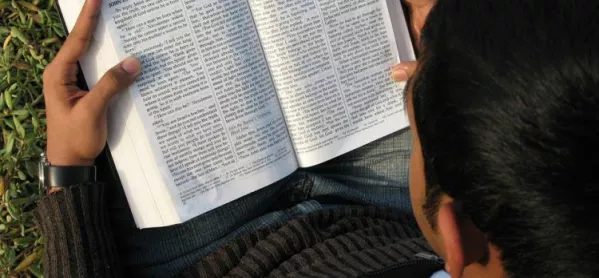Sunday schools and madrasas should be treated as “informal classrooms” and monitored accordingly, the head of education at Birmingham City Council (BCC) has said.
Colin Diamond, the council’s corporate director for children and young people, has called on the government to regulate education spaces outside of formal school settings.
He told Tes: “Thousands of kids in this city will go to education spaces this evening and will be there for a few hours and will be taught about Koranic values or Christian values. We feel they should be regulated.
“These are classrooms by any other name. They are large groups of children. I do wish the government would grasp this stingy old nettle.”
Trojan Horse scandal
Four years ago, Birmingham City Council received the infamous letter alleging a plot was in place to take over a number of the city’s schools and run them on strict Islamic principles.
November 2013 was just the start of the “Trojan Horse scandal”, which put the community of Birmingham - and the city council in particular - on the firing line for nationwide criticism.
But Mr Diamond insists that the schools in Birmingham have come a long way since then - and that the major concern is around unregulated spaces outside of school.
He said: “I think the biggest risks in terms of exposure to any form of non-mainstream societal values are either if you are at home, because you are not part of the social group, or if you are in an independent school that is at the margins of things, or if you are in the unregulated space which includes Sunday schools, madrassas, all these places where there is no regulation whatsoever.”
Limited powers
And following last month’s judgement by the Court of Appeal that Birmingham’s Al-Hijrah school’s gender segregation policy was unlawful, Mr Diamond fears the decision could lead to more parents choosing to educate their children at home, to keep their daughters separated from boys.
But the council has limited powers to check on these children. He said: “As local authorities, we should have a right to see children who are educated at home - and I don’t currently have that right.
“We think there should be a change of a law - and we are told it’s under discussion [by the Department for Education].”
This is an edited article from the 24 November edition of Tes. Subscribers can read the full interview here. This week’s Tes magazine is available in all good newsagents. To download the digital edition, Android users can click here and iOS users can click here
Want to keep up with the latest education news and opinion? Follow Tes on Twitter and Instagram, and like Tes on Facebook




